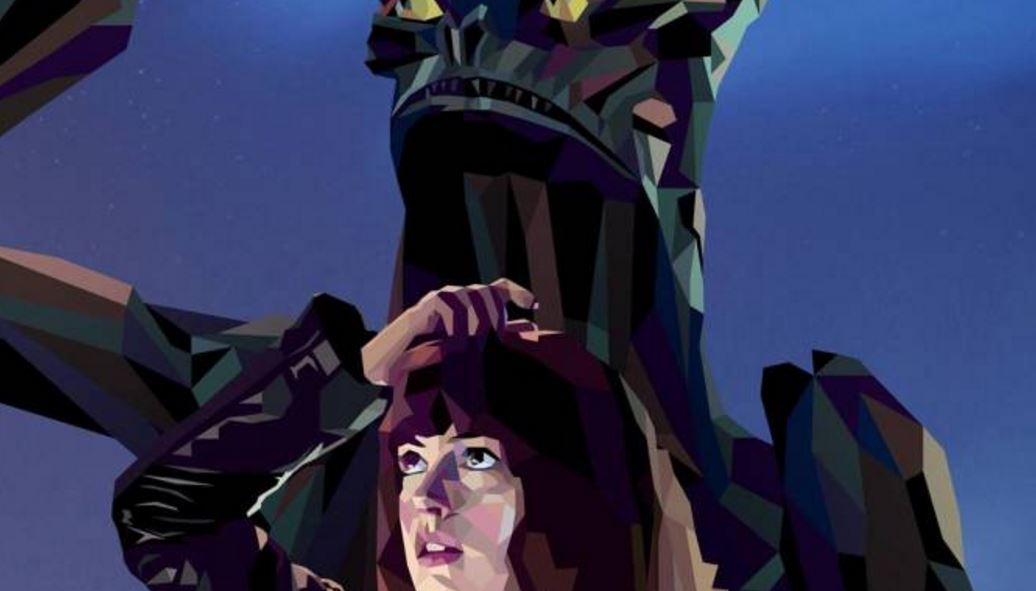Directed by the delightfully mad, singularly creative Nacho Vigalondo, Colossal is one of the most compulsory films I’ve seen this year.
Vigalondo’s impressive Kaiju variant asks us to accept a lot, over the course of its story of Gloria, a young woman (Anne Hathaway, who is more reliable in a wide variety of roles than I tend to give her credit for) forced to return to her hometown after a sudden breakup with a boyfriend (Dan Stevens, who is freaking everywhere these days). It is clear from the start that the boyfriend at least has a reason to be frustrated. Gloria has a drinking problem. She is seemingly well past the point of being able to help herself.
She returns to her nameless hometown, located far enough from Manhattan to make us understand just how shitty things have gotten for her. It’s not a bad town per say. However, through a masterful, steady use of sparse details, Vigalondo reminds us of our own memories of such small, suffocating towns and suburbs.
Furthermore, without being particularly overt about it, Colossal also reminds us rather neatly that simply escaping from these towns and childhoods isn’t always enough. In the film, it wasn’t enough for Gloria, who is now back at her parent’s depressingly abandoned home. Without much in the way of options or optimism that things will change, Gloria winds up working for Oscar (Jason Sudeikis, who manages to be effective on several crucial levels), a childhood friend, at the bar he inherited from his father. Initially, Oscar seems like a decent guy. He brings Gloria furniture for her empty, miserable house. He gives her a job at the bar, introducing her to his friends (Tim Blake Nelson and Austin Stowell). Although Gloria continues a pattern of heavy drinking and misery, we get a sense early on in the film that at the very least, things are happening for her.
And then a giant monster shows up in Seoul, South Korea. This happens pretty much out of nowhere. In other films, this shift in the story might come across as the introduction of a shoddy, shallow gimmick. If nothing else, in the hands of another filmmaker, there’s a good chance that Gloria’s realization of her connection to this monster would simply feel absurd. To a certain extent, it does.
Yet the film is supported by grounded, believable performances from Sudeikis and Hathaway. Eventually, Gloria comes to realize that for whatever reason, she causes the monster to appear in Seoul, simply by standing in a certain spot in an unremarkable park in her unremarkable Middle American hometown. Further complicating things is the realization that she can also control the monster. Again, all of this could turn a good movie into a lousy, tedious affair pretty quickly, but Colossal avoids this by keeping a lot of our attention on subjects like alcoholism, childhood, the savage toxicity of abusive relationships, and the pitiable condition of men who are poisoned by their own insecurities. Even as Oscar discovers that he can control a giant robot in Seoul by stepping into the same space in the same park, the movie continues to focus on crafting a unique character study. Nacho Vigalondo is successful in creating that character story to an extent that leaves you wondering what he could do outside of the horror genre.
Colossal doesn’t have the comedic moments it needs to become a horror/comedy hybrid classic, but it is one of the most inventive departures from an established formula (kaiju movies) in at least the past few years. While the film struggles occasionally to keep so many different stories, themes, and weird marriages of differing cinematic ideals in play, it never gets boring.
The movie is a rare pleasure of a film that tries something different, and succeeds because it has more to go on than just the desire to do something different with giant robots and monsters. Right down to the fact that Oscar is the robot, traditionally the hero in kaiju stories, while Gloria is the monster, traditionally not the hero in kaiju stories, Colossal has a low-key confidence in its uniqueness. With a script that focuses on characters and complex themes, that low-key confidence is understandable.
Some of the coverage you find on Cultured Vultures contains affiliate links, which provide us with small commissions based on purchases made from visiting our site.

